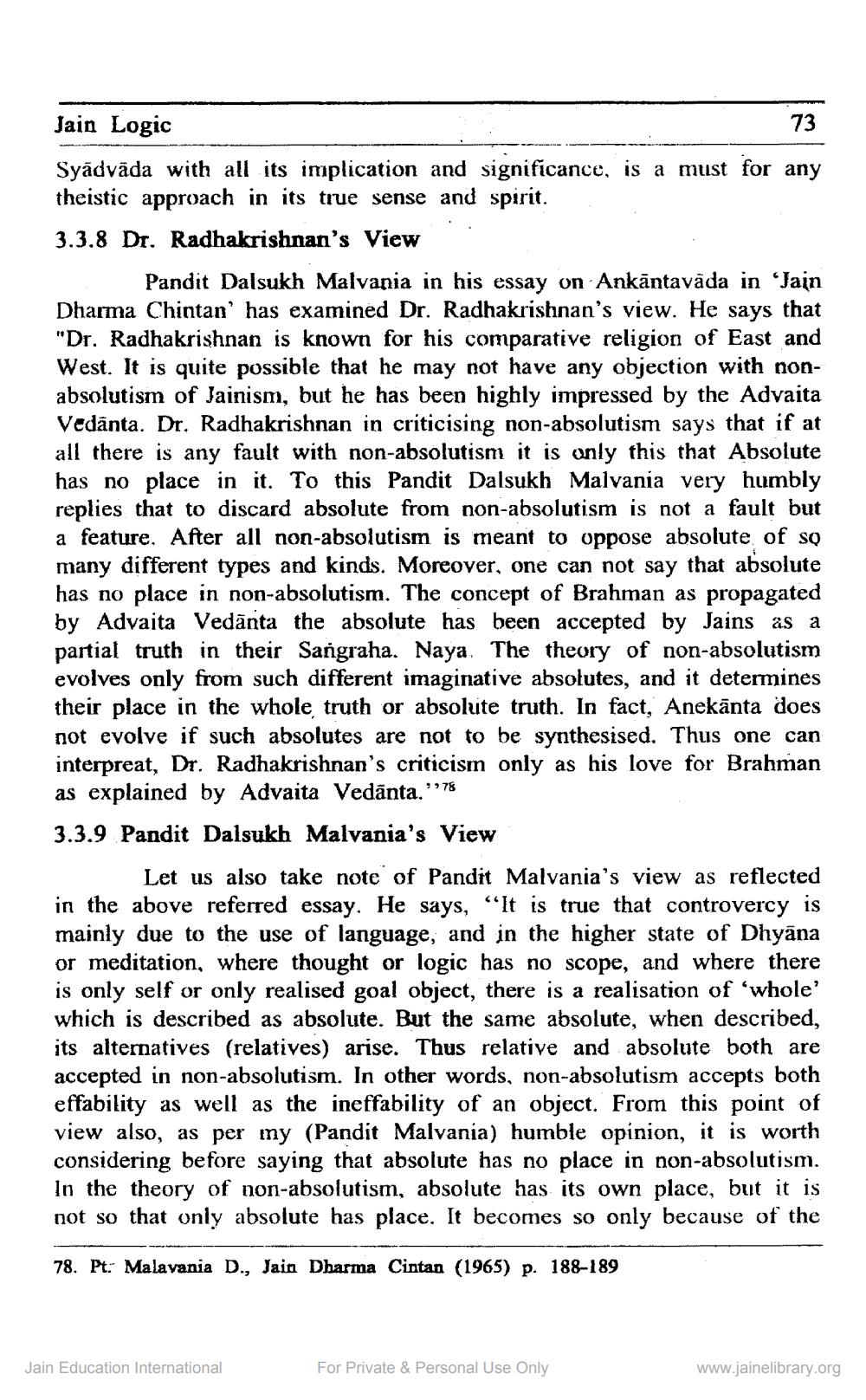________________
Jain Logic
73 Syādvāda with all its implication and significance, is a must for any theistic approach in its true sense and spirit. 3.3.8 Dr. Radhakrishnan's View
Pandit Dalsukh Malvania in his essay on Ankāntavāda in Jain Dharma Chintan' has examined Dr. Radhakrishnan's view. He says that "Dr. Radhakrishnan is known for his comparative religion of East and West. It is quite possible that he may not have any objection with nonabsolutism of Jainism, but he has been highly impressed by the Advaita Vedānta. Dr. Radhakrishnan in criticising non-absolutism says that if at all there is any fault with non-absolutism it is only this that Absolute has no place in it. To this Pandit Dalsukh Malvania very humbly replies that to discard absolute from non-absolutism is not a fault but a feature. After all non-absolutism is meant to oppose absolute of so many different types and kinds. Moreover, one can not say that absolute has no place in non-absolutism. The concept of Brahman as propagated by Advaita Vedānta the absolute has been accepted by Jains as a partial truth in their Sangraha. Naya. The theory of non-absolutism evolves only from such different imaginative absolutes, and it determines their place in the whole truth or absolute truth. In fact, Anekānta does not evolve if such absolutes are not to be synthesised. Thus one can interpreat, Dr. Radhakrishnan's criticism only as his love for Brahman as explained by Advaita Vedānta.'78 3.3.9 Pandit Dalsukh Malvania's View
Let us also take note of Pandit Malvania's view as reflected in the above referred essay. He says, “It is true that controvercy is mainly due to the use of language, and in the higher state of Dhyāna or meditation, where thought or logic has no scope, and where there is only self or only realised goal object, there is a realisation of “whole' which is described as absolute. But the same absolute, when described, its alternatives (relatives) arise. Thus relative and absolute both are accepted in non-absolutism. In other words, non-absolutism accepts both effability as well as the ineffability of an object. From this point of view also, as per iny (Pandit Malvania) humble opinion, it is worth considering before saying that absolute has no place in non-absolutism. In the theory of non-absolutism, absolute has its own place, but it is not so that only absolute has place. It becomes so only because of the
78. Pt. Malavania D., Jain Dharma Cintan (1965) p. 188-189
Jain Education International
For Private & Personal Use Only
www.jainelibrary.org




